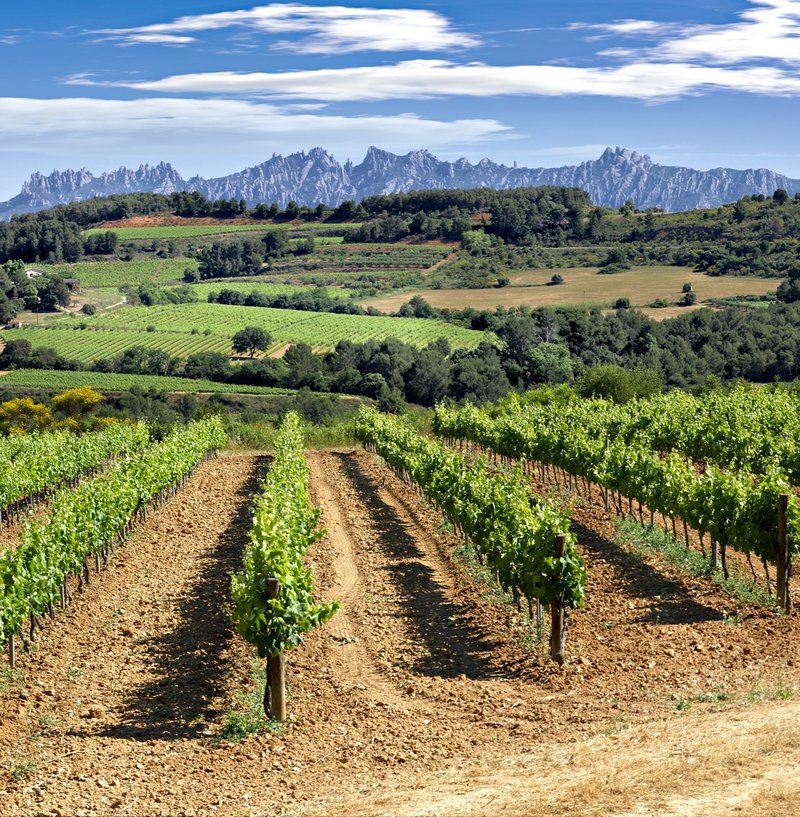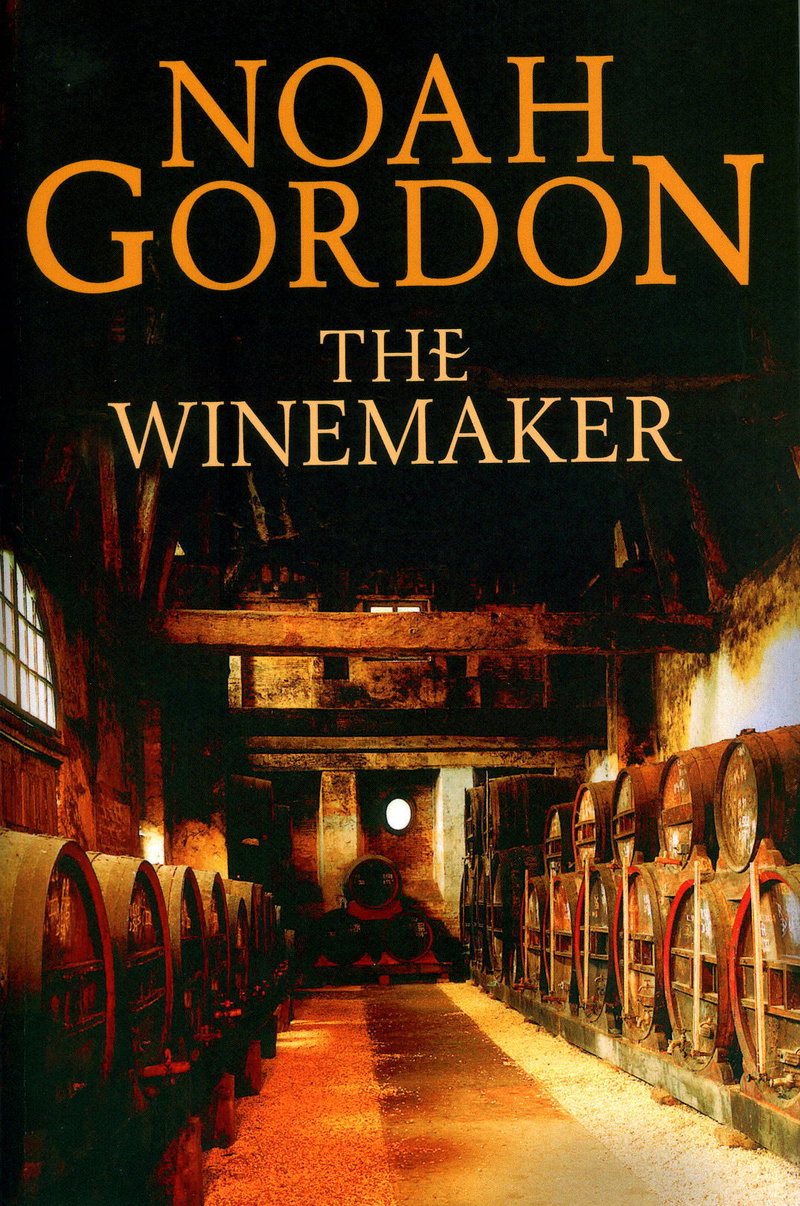Far-away adventures The grapes of peace
Noah Gordon is a writer who does not resort to using a flashy literary style or dazzling imagery. His effective but popular books are firmly based on a good story and richly detailed description
The Winemaker has a plot that fits together as well as the church door that its main character, Josep, manufactures. Noah Gordon explains the problem with the old door, where and how the wood is bought and transported and how the parts are joined and glued. His gift is to make these details of craft and everyday life fascinating. And then he gives them a twist – in this case, that Josep is not religious.
Ripeness is all
The church door is one of many cameos, while the main theme, the driving force of this book, is wine-making. Josep and his neighbours in Santa Eulàlia, a fictional Penedès village, are small proprietors who cultivate vines on narrow strips of land. The wine is so poor it's sold straight for vinegar. Josep, though, dreams of making real wine.
Gordon's novel is balanced between disaster and success, tragedy and comedy, and not till the end do readers know which will prevail. It is the story of Josep's journey to maturity. Returning from French exile on his father's death, he finds his elder brother Donat has abandoned their land to earn money in one of the new textile factories near Barcelona. Josep buys him out, even though he condemns himself to years of toil to pay the debt. Yet he is content, for he has developed a passion for the land and its vines.
In Languedoc he had learned how to fertilise the land, prune vines, appreciate differences in soil composition and varieties of grape, taste them and wait to harvest. Waiting is a risk: the weather might break and a storm ruin the crop. But Josep waits and waits till the day his taste-buds tell him the swollen grape, shiny with early morning dew, is fully ripe. Josep's passion for wine is the glory of the book.
In a bleak back-story, Josep and other young men from the village were recruited for training as soldiers. These are the second sons, who have to seek their destiny elsewhere, as the strips of land can only support the eldest son. They are secretly trained by a mysterious martinet, Sergeant Peña.
It is the time of the Carlist wars and General Prim, from Reus and liberal Prime Minister in the First Republic, is assassinated in an 1870 Christmas snow-storm (like Kennedy's death, controversial to this day). Gordon ably inserts this real event into his fiction: the young men trained in the village are lured into participation in the murder.
After Prim's assassination, the village men are themselves killed so they cannot bear witness. By wits and luck, Josep escapes and reaches exile in France. The threat of Peña's reappearance hovers over the rest of the story.
There are unconvincing parts to this background plot: why were the young men issued with revolvers? Why did Peña not look for Josep sooner? Despite these quibbles, the Prim plot works as an action counter-point to Josep's life tied to his vines.
Sexual desire, money and wine
The novel's power lies in the detailed recreation of village life in this historical period. Noah Gordon does not enter too richly into character nor deeply into political problems. Yet he is not bland.
He is realistic about sexual desire. A homosexual priest and his playful peasant lover, a mother and daughter selling sex, the balance of lust, economy and good conduct in sexual relationships are all treated with refreshing naturalness. And he writes of money. The poor always worry about money. In The Winemaker you can breathe the characters' anxiety about money.
Josep is a loner, by temperaent and because he saw his friends killed. Gradually he is drawn into village life by joining the castellers and into joy by his neighbour Marimar's son Francesc, who longs to be the anxaneta (the child who crowns the castell or human tower) for the local castellers.
Noah Gordon's re-creation of Catalan country life 140 years ago is something of a study of bygone rural customs and manners. Illness, a polluted well, buying a cart, Sitges market, chicken theft and a huge wild boar digging up vines are just some of the local incidents. The Winemaker is not profound in philosophy or characterisation, but Gordon knows how to send the sensuous feel of vines and the tastes of wine as deep into readers' feelings as the cave, the bodega, that Josep digs out of the hill-side.
Born in 1926, Noah Gordon grew up in Worcester, Massachusetts, in a Jewish home in Irish and Italian Catholic neighbourhoods. He tells how he escaped childhood poverty with day-dreams of far-away adventures. As an adolescent, these dreams were fed by the municipal library (keep them open!). He learned early he wanted to tell stories like the ones he found on the shelves.
And when he became a historical novelist, he created protagonists who are outsiders like his own young self and Josep the winemaker. His sensitivity to someone who belongs to a community, yet stands slightly apart, is one of the keys to his popularity. He is a best-selling writer, but that does not mean he is facile or simplistic.
Gordon was just old enough to serve in the infantry at the end of World War II. He then followed his parents' wishes and matriculated at university in Boston as a medical student, but switched secretly to journalism. Graduating in 1950 he moved to New York, married Lorraine and worked in a publishing company and then as a science journalist. By 1959 he was back in Boston as science editor of the Boston Herald.
His first published novel, The Rabbi (1965), became a big-seller in the USA. He has followed it with seven more works of historical fiction, meticulously researched and slowly written. Several highlight medical themes, his favourite subject, he says, because medicine represents “the drama of life or death”.
Despite early success in the USA, it is in Germany and Spain that his books have really taken off. The Physician (1986) has sold some ten million copies, but only ten thousand in the USA. It became a German film (2013) and is now into production as a musical. Unusually for an English-language writer, but reflecting where his sales are, his most recent novel, The Winemaker reviewed here, was first published in Spanish.
The Cole trilogy, consisting of The Physician, Shaman (1992) and Matters of Choice (1996), features three doctors of the same family in the eleventh, nineteenth and twentieth centuries, respectively. The third deals with a woman's right to choose, showing Gordon's liberal values, which permeate The Winemaker, too. More on him and his books at
www.noahgordon.com




